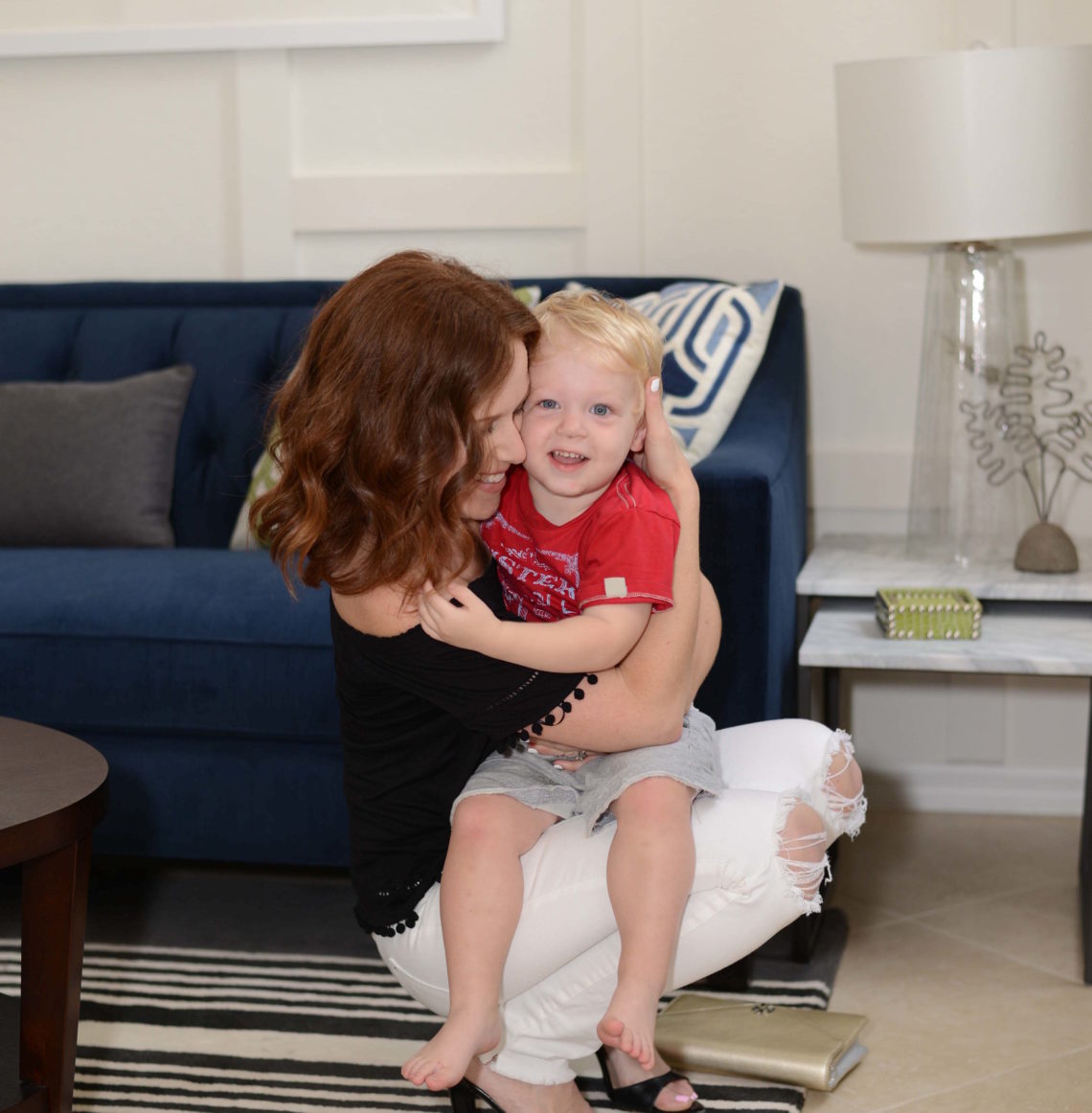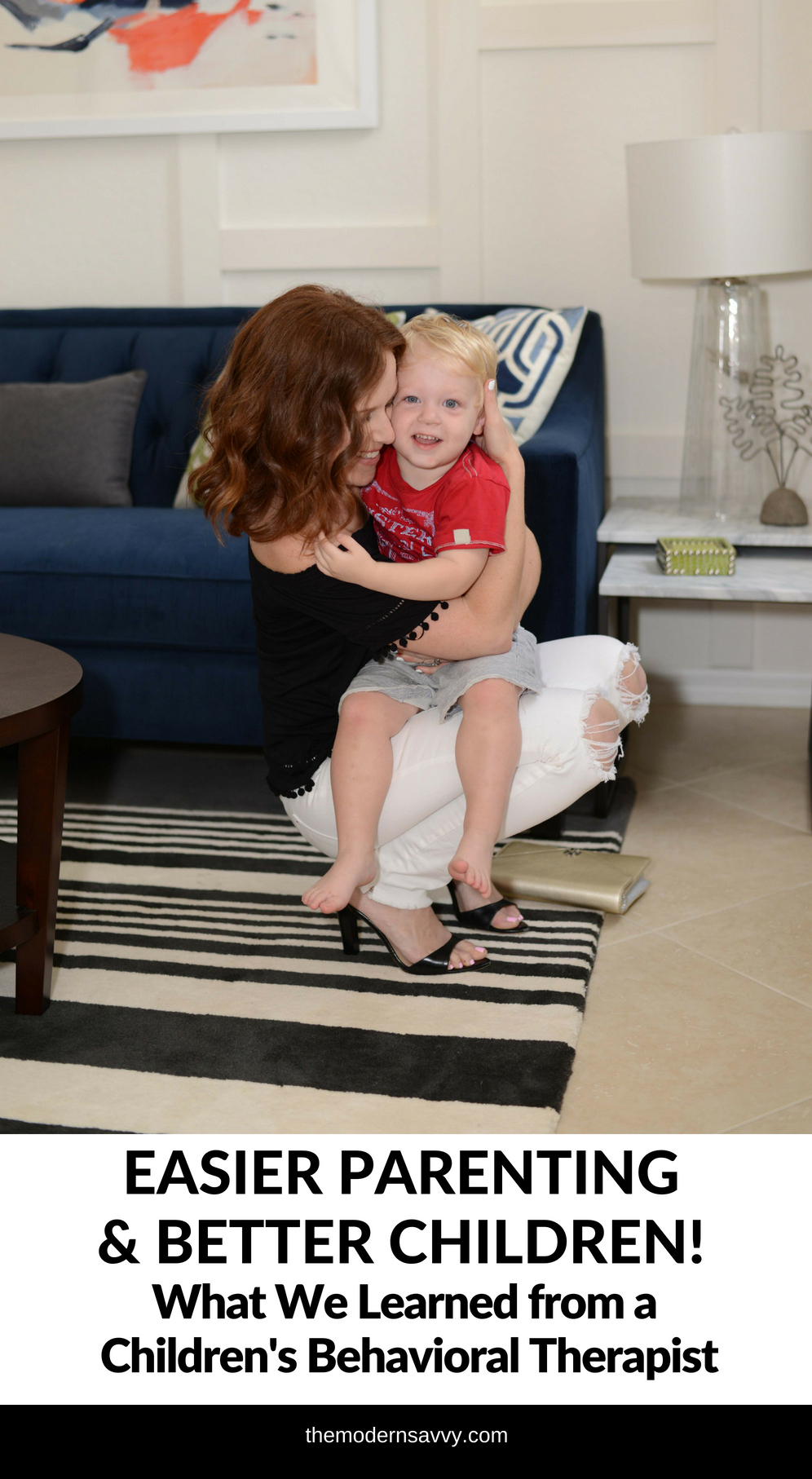There’s so much I want to share with you. Being a parent is one of the most insanely rewarding things I will ever do. But I’d be lying if I said it wasn’t tough, made me feel like an utter failure at times, made me want to pull my hair out… or at least pour an oversized glass of wine. I know though most of us have been there. Social media can make us feel like every family has it more together, and sure, a few might be, but many of us are filled with joy yet equally struggling in various ways and nervous to share.
So I’ll start, and tell you this: We have been seeing a children’s behavioral therapist to learn how to better communicate and parent our children. At the same time, I’m a mama bear who wants to fiercely protect them. They’re growing up in an age where what we write and the photos we share will become their digital footprint. So as much as I often want to share more of our parenting journey, I consciously limit it and want to focus on us as parents and less specifically about them. Every blogger and writer is different but this is what I’m comfortable with so every day I aim to find the balance, and only include them with their permission. That said…
Seeing a child behavioral therapist is quite possibly the best decision we ever made as parents.
Raising kids is tough. It’s fiercely rewarding and the most important role I’ll ever have. But when you love someone that much, you want to do your best so they can be their best… and that’s hard when you’re learning on the job. Every child is so different that it’s not like there’s a formula that will work for everyone. If only.
Just because we have children doesn’t mean we have all the answers. I think most of us know that by now. Every day brings up about 483 questions and situations I have to figure out in a hot second. As much as I think I add value in my professional jobs, some of this parenting stuff doesn’t come as naturally to me. I work at it because all I know is that I am determined to be a good parent and raise good, kind human beings.
While our kiddos might be similar in some ways, our son challenges us in a way that we never experienced. As helpful as teachers and friends and books are, we needed more tangible answers to real daily challenges.
My struggles hurt my heart, all compounded by annoyed glares that for sure felt like mom shaming. It was clear people thought I didn’t know how to parent or control my sweet boy. If only it were that easy. Anyone who’s been on this journey knows exactly what I mean.
Long story short, we realized we needed professional help and that we must do it together.
We wound up sitting on couch of a child behavioral therapist. He only met our boy once, because we learned its way more about us. We needed to learn how our reactions and parenting to his communications and actions could be improved for his betterment.
What we quickly realized is that EVERY parent could benefit from what the child behavioral therapist told us! Why didn’t every parent learn this stuff the minute they found out they’re expecting? It was equally eye opening as it was frustrating to think we waited this long.
Here’s six favorite things we’ve learned from seeing a child behavioral therapist:
Parents today work too hard. We need to let kids be kids because we need to be the parents. That means you are in charge, not them. That means just because they ask for something does not mean you need to get it. It means they should do something the first time you ask; our motto: “we listen the first time and happily!” (fact: Sarah gives me death eyes every time I say this but it usually works!). Our job is to teach, support and prepare them for a successful adult life. It’s not to coddle them.
Ignore the negative…. and heavily focus on the positive. If your child tends to be argumentative, combative, or disruptive, these are primarily learned actions where they see they get your attention. The goal is your attention and they’ve learned they’ll get it through poor behavior. We now strive for a 5 to 1 ratio of pro-actively acknowledging good behavior. It will feel super excessive at first, but it works! You’ll realize that you acknowledge good behaviors so much less because we expect them… but they need to see we see them. Now when he (and she) acts poorly, we don’t give it attention or power. Do not raise your voice, do not look or talk any more than you need. Take his or her hand, move them away from the situation. BAM. I am shocked how much calmer it makes me, and how many full-on tantrums we’ve mitigated as a result. Our boy has literally put himself in a time out when he felt himself getting worked up! We still have plenty of moments — it’s a work in progress — but we have all seen a definite improvement.
Not listening? This goes back to what I was saying before, do not raise your voice. You are the authority, not them. Instead we now keep it light hearted. My favorite expression is a smiley, “Nice try!” If it’s time to go, clean, eat, etc., now is the time. “Nice try bub, time for a bath!” If I’m being ignored or worse, take his or her hand and guide them where you need, otherwise no communication. To up your chance of success, for example, consider creating a chart outlining a problem areas or routines…. google search morning routine or bedtime routine chart, and use those or customize your own (we did). Another tip to help with transitions: Don’t just say “5 minutes”… they’re barely listening and have no concept of time when they’re playing or watching TV. Use your phone timer, and agree on a time. Our boy hits the start button, which makes him aware, and voila! When time is up, he is ready 8 out of 10 times. That’s better than our 2 out of 10 before! (PS: never give an extra minute… when time is up, time is up).
Really not listening? Do not give in and do not show your clear frustration. Funny story: I shared a few months ago on Instagram and Facebook this photo, where our adorably sweet boy purposely spilled an entire box of Cinnamon Toast Crunch all over our floor. Holy cow… cinnamon on your floor sure feels like sand in your house. The worst. Coincidentally, we had recently talked through a similar example with the child behavioral therapist so we followed his instructions: asked our boy to pick it up, he refused. We said, nice try, clean it up. Nope. So I calmly said, OK… I’m sorry but you can’t eat until you clean it up. Long story short, this happened at 10:30 am and he cleaned at nearly 7 pm. Did he want lunch? Of course. Did I give in? No. He took a nap hungry. Sure, he had a tantrum once or twice. Did he starve to death? Of course not. Has he done it again? 100 percent no. #momwin! It’s called the “extinction method” and we followed through. Follow through is critical. Once you’re that deep in, they’re waiting for you to cave. Do not, and do not show your emotion. (hence why I grabbed a glass of rose!).
Focus on a few key areas for improvement. When we first met with our child behavioral therapist, we outlined our key areas of frustration. Each session we would start by ranking the behavior so we could see improvement and speak to specific areas. Do the same in your home. Saying you want your child to have “better behavior” is super vague. Do you want them to stay at the table for dinner? Go to sleep when they’re told? Do you have a hard time with cleaning up his room? Are they physically aggressive? You’ll overwhelm yourself and your kiddo if you try to remedy 15 things at once. Focus on the most frustrating, biggest challenges first, and then work your way down the list. I read about this in the book, The Explosive Child, and it makes so much sense.
Set your child up for success. I’ll leave you with this last one because it’s just as important that you figure out what is triggering your child. Loud restaurants? Being ignored? Too many toys in their room make it tough to go to sleep? While we can’t live for our child, it will make everyone’s life easier if you set them up for success. For example, we invite family to our house instead of going out for 12 person dinners; it’s always been a disaster. It might be more work but generally, it’s way more enjoyable. Tough time going to sleep? If toys are a distraction — and I know this going to suck — remove it all. We literally removed every single book and toy from his room. Our hallway was a disaster but we needed to remove the problems and he needed to know we were in charge, not him.
I could go on and on. I don’t want to pretend I can condense 10-15 hours of work with the child behavioral therapist into one blog post. That said, these have been so helpful. Focusing on the positive, really ignoring the negative, being more lighthearted and not raising our voices, and being a united front, have made a world of difference.
We’ve also been working on sleep (we had both kids sleeping in their cribs at one week at sleeping through the night between 6-8 weeks); would you be interested in a post?
For another resource, I recently discovered Ralphie of Simply on Purpose. Her Instagram stories are insanely helpful and in line with so much we are learning. I highly recommend it.
Love this post? Click here now for more of my thoughts on family life!






Join the Conversation
Jessica
July 29, 2018 at 3:51 AMThis is a great read dear. This is truly inspiring. Thanks for sharing this!
Jessica | notjessfashion.com
Jess
July 26, 2018 at 2:31 PMI just wanted to say I am a child therapist–thanks for this post! It helps people like me do our jobs better when people start normalizing seeking help.
ErinG
July 25, 2018 at 5:42 PMExcellent post! My son has feeding/ sensory issues and after trying multiple feeding specialists, we tried a behavioral therapist. She stayed with us a whole day to see how we approached meals, rewards etc. I was so scared of her judging us!! That didn’t happen, and she was a huge help- not just for feeding but parenting in general. From your post, I agree following through is the MOST important!
Kaydee
July 25, 2018 at 11:58 AMThanks for this post! We are entering this phase of life with our son and see the beginnings of how we react really make him act a certain way more or less. It’s not easy at all and I’m encouraged by hearing your progress. Keep rocking it!
Linda
July 25, 2018 at 11:07 AMI am not the guardian of my niece, but I do help take care of her and spendi 3 nights a week with her and have her all of Saturday.
She is 12 and very difficult sometimes. When she is mad, she has to make sure everyone is mad also. She wants to be in control and bullies the others around her. I made a very tough decision and said enough was enough. I wasn’t going to argue anymore. I took away everything from her. She finally apologized and we spoke about her behavior and why it is unacceptable. It was honestly very difficult to not give in and let her have her way. I shed a few tears (behind closed doors), but knew she was going to reflect my behavior. I needed to stay calm and not yell.
The last week, she has grown and her attitude is much improved.
Thank you for the list.
Andrea
July 25, 2018 at 10:38 AMI really appreciated reading all of these tips, and I would be so excited for a post about sleeping. We have a 2 year old little girl who has never been a good sleeper, and we recently transitioned her to a Big Girl Bed. Cue the climbing right out and pounding on the door at 2am… Looking for some advice on how to keep her in her bed and get her to sleep better.
Kimberly Smith
July 25, 2018 at 8:47 AMThis is such an excellent post & I whole-heartedly agree with the tips you were given! Also love Ralphie and her approach to parenting – more moms need that advice!!